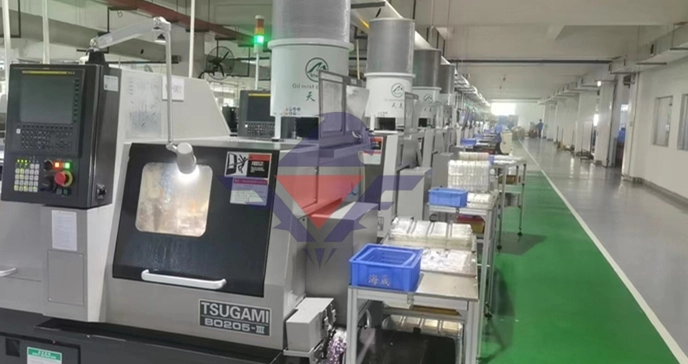
,文章长度在1000字左右。
Swiss Machine Shop: Precision Engineering for High-Quality Components
In the world of manufacturing, precision is paramount. Swiss machine shops have long been recognized for their ability to produce high-quality components with exceptional accuracy. These specialized facilities utilize advanced Swiss-type lathes and machining techniques to create intricate parts that meet the most demanding specifications. Whether for aerospace, medical, or automotive industries, Swiss machine shops play a critical role in delivering reliable and precise components.
The Swiss Machining Advantage
Swiss machining, also known as Swiss screw machining, originated in Switzerland’s watchmaking industry. The technique was developed to produce small, precise components for timepieces, but its applications have since expanded to various industries. The key advantage of Swiss machining lies in its ability to handle tight tolerances and complex geometries with remarkable consistency.
Unlike conventional lathes, Swiss-type machines feature a sliding headstock and guide bushing that provides superior support for the workpiece. This unique design minimizes deflection during machining, allowing for exceptional precision even with long, slender parts. The result is components that meet exacting standards with minimal post-processing required.
Industries Served by Swiss Machine Shops
Swiss machine shops cater to numerous industries where precision is non-negotiable:
Medical Device Manufacturing
The medical industry relies heavily on Swiss machining for implants, surgical instruments, and diagnostic equipment components. The ability to work with biocompatible materials like titanium and stainless steel while maintaining micron-level precision makes Swiss machining ideal for medical applications.
Aerospace and Defense
Aircraft and defense systems demand components that can withstand extreme conditions while maintaining perfect functionality. Swiss machine shops produce critical parts for fuel systems, avionics, and propulsion systems that meet rigorous aerospace standards.
Electronics and Telecommunications
As electronic devices become smaller and more sophisticated, the need for miniature precision components grows. Swiss machining excels at producing connectors, pins, and other small parts essential for modern electronics.
Materials Processed in Swiss Machine Shops
Swiss machining centers are versatile enough to handle a wide range of materials:
- Stainless steel (300 and 400 series)
- Aluminum alloys
- Titanium
- Brass and copper alloys
- Plastics (including PEEK and Delrin)
- Exotic alloys (Inconel, Hastelloy, etc.)
Keyword: Swiss Machine Shop
The ability to machine these diverse materials while maintaining tight tolerances makes Swiss machining invaluable across multiple industries.
Quality Control in Swiss Machining
Reputable Swiss machine shops implement rigorous quality control measures to ensure every component meets specifications:
- In-process inspection using advanced metrology equipment
- Statistical process control (SPC) monitoring
- First-article inspection protocols
- Comprehensive documentation and traceability
- Certifications such as ISO 9001 and AS9100
These quality assurance practices guarantee that components not only meet dimensional requirements but also maintain consistency across production runs.
Choosing the Right Swiss Machine Shop
When selecting a Swiss machine shop for your precision component needs, consider these factors:
Experience and Expertise
Look for shops with extensive experience in your specific industry and with the materials you require. Experienced machinists